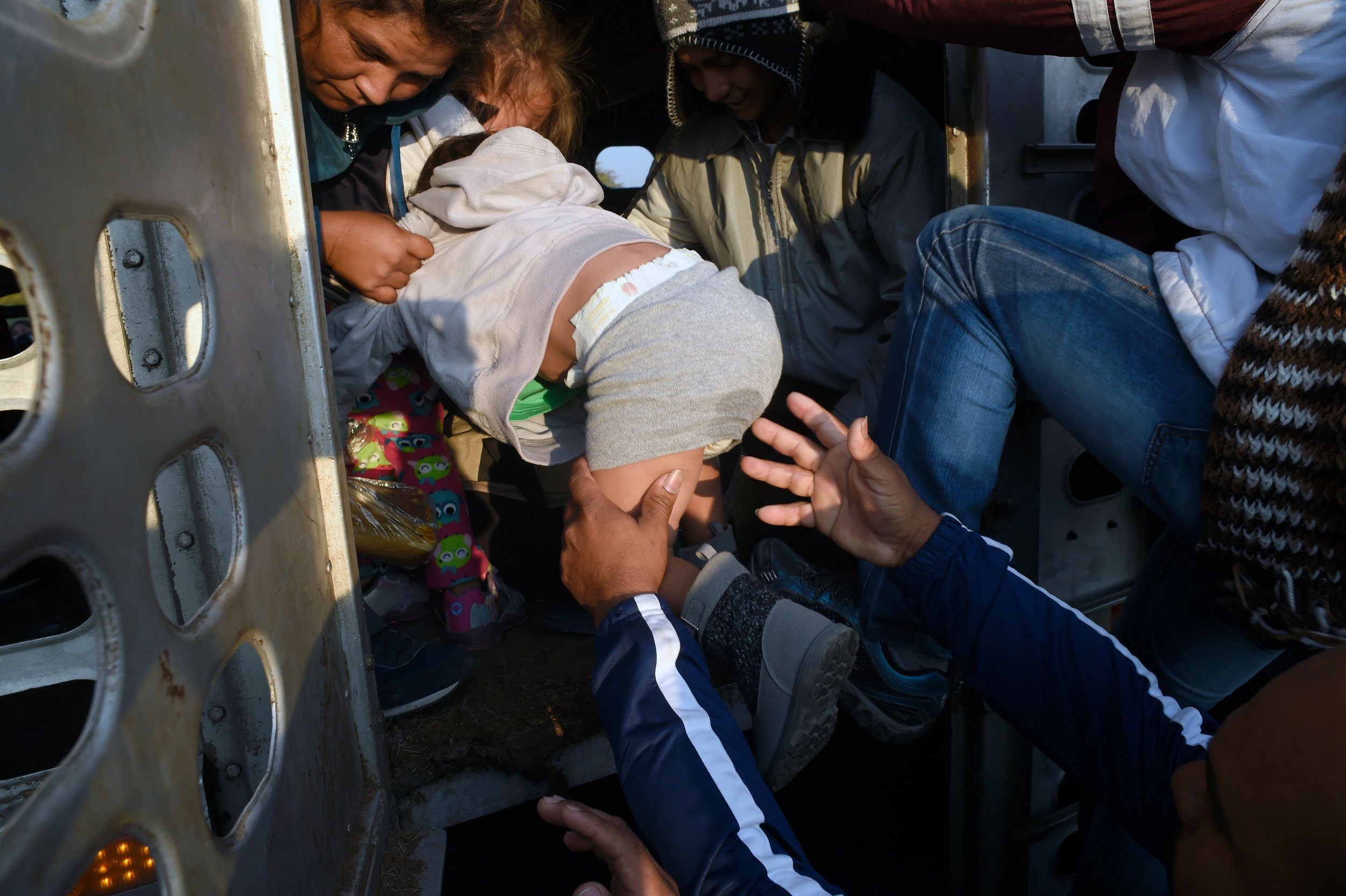
After months of an arduous journey across Mexico, some Central American migrants are giving up on seeking asylum in the U.S., while several of them are falling ill in filthy, overcrowded shelters.
The local government in Tijuana, Mexico, allocated a sports complex for the U.S. bound migrants following their arrival in the border city, Reuters reported. However, the facility does not have the capacity to host the 6,000 Central Americans who now live under poor sanitary conditions there, and some of them have to sleep on the floor using cardboard boxes. Meanwhile, other migrants began setting up tents and living in makeshift shelters, but the overcrowding has also led to the spread of respiratory illnesses, lice and chicken pox, according to anonymous sources consulted by the news agency.
In the wake of a strong response by Border Patrol, who over the weekend launched tear gas at the asylum seekers—including children and women—the migrants' hopes of seeking refuge on U.S. soil is fading, and at least 350 of them have asked authorities to help them return to their country of origin.
"If they don't come, I'll return to my home," a 22-year-old Guatemalan migrant told Reuters, adding that he would not stay in Mexico because low-paying salaries do not allow him to send money back to his country. "You don't earn well here."
In October, the outgoing Mexican administration of Enrique Peña Nieto launched "This Is Your House," a program that offered temporary employment, education and health care to migrants living in the southern Mexican states of Chiapas and Oaxaca. Nevertheless, only 3,000 migrants applied to remain in Mexico, whereas the rest chose to travel across Mexico, in hopes of reaching the U.S. border.
At least 2,010 migrants had signed up for a "voluntary return" after they crossed the Guatemala-Mexico border on October 19, according to The Washington Post, citing a spokeswoman for Mexico's National Migration Institute. The reason behind their decision includes their having walked long distances in sweltering heat and other rough conditions.
Others were still determined to obtain a better life, however. On Thursday, over 600 people had solicited permits to work in Mexico, the Foreign Ministry said.
"It cost me a lot to walk almost 15 to 20 hours a day, and to go back now: no," a 26-year-old woman told Reuters.
The arrival of Central Americans at the U.S.-Mexico border have spurred heated encounters with Tijuana residents. Last week, Mexican soccer-jersey-clad protesters held signs reading "No illegals" and "No to the invasion," and some of them sang the national anthem and chanted "Mexico first." Juan Manuel Gastelúm, mayor of Tijuana, donned a cap that read "Make Tijuana Great Again," an apparent nod to President Donald Trump's Draconian stance over the migrant caravan and immigration in general.
In fact, in a tweet posted Monday, Trump has defended the use of tear gas and urged Mexico to move "the flag waving Migrants, many of whom are stone cold criminals, back to their countries." He later added, "Do it by plane, do it by bus, do it anyway you want, but they are NOT coming into the U.S.A. We will close the Border permanently if need be. Congress, fund the WALL!"
Some of the migrants staying on Mexican territory are still hoping to enter the U.S., and human rights organizations worry that Mexico does not offer security conditions for those fleeing poverty and violence. Furthermore, a report from The New York Times published Monday said that the incoming administration of Andrés Manuel López Obrador is likely to grapple with a humanitarian emergency that would "create a political crisis" once he assumes power on December 1.
Uncommon Knowledge
Newsweek is committed to challenging conventional wisdom and finding connections in the search for common ground.
Newsweek is committed to challenging conventional wisdom and finding connections in the search for common ground.
About the writer
Robert Valencia is deputy world editor for Newsweek. Robert has covered issues related to drug policy, human rights, U.S. presidential ... Read more
To read how Newsweek uses AI as a newsroom tool, Click here.








